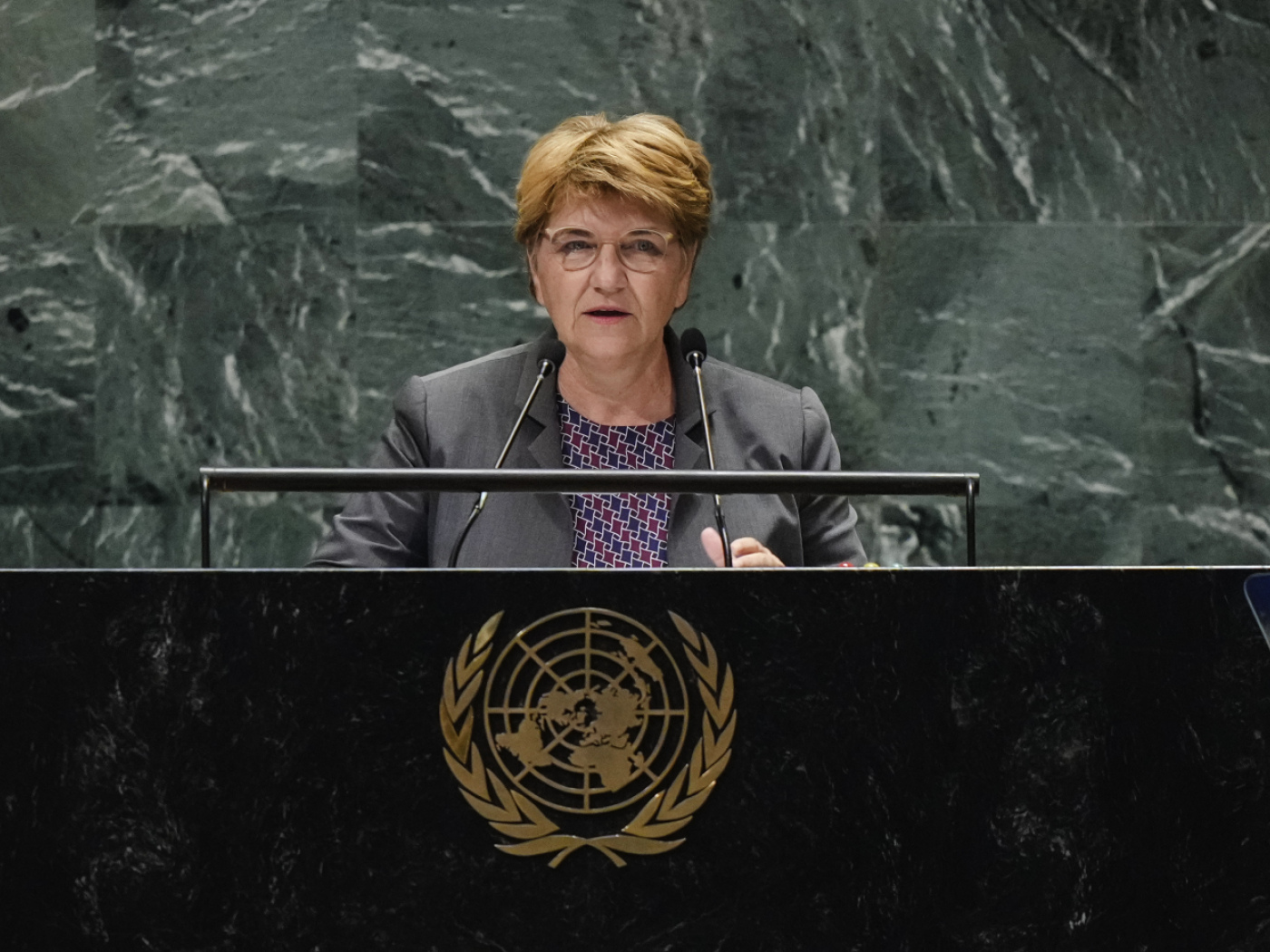
Pact for the Future is a wake-up call for UN, says Swiss President

According to Swiss President Viola Amherd, the United Nations' pact for the future is a wake-up call to strengthen the commitment to multilateralism.
+ Get the most important news from Switzerland in your inbox
“To drive forward the necessary UN reforms, we not only need a strong political will, we also need to restore trust,” said Amherd at the “Summit of the Future” on Sunday at the UN in New York.
The United Nations Charter, which came into force 80 years ago, established a general prohibition on the use of force, and respect for human rights and laid the foundations for international cooperation. “The Charter was visionary and remains so to this day,” said Amherd, who holds the rotating Swiss presidency.
Today, more than ever, UN members must follow the example of their predecessors. This goes hand in hand with the obligation of states to work towards a more stable, just and peaceful world.
Painful compromises
In order to make the pact acceptable to a majority, everyone had to make compromises, some of them painful. “As members of the international community, it is our duty to work together across our differences and ensure that our common future is not determined solely by national self-interest,” said Amherd.
The Summit of the Future, at which the UN member states adopted the Compact for the Future, is an attempt by the Secretary-General to reinvigorate global action and further develop the framework of multilateralism so that it is equipped for the future.

More
UN summit of the future – what future?
Switzerland could strengthen the UN by constantly reiterating the importance of multilateralism and making a strong commitment to human rights and peacebuilding, Amherd told the Keystone-SDA news agency in New York.
Amherd is still in New York until Wednesday as part of the opening of the 79th UN General Assembly. On Monday she will take part in an event on strengthening the role of women in Afghanistan. On Tuesday, she will deliver Switzerland’s address to the General Assembly. On Wednesday, she will take part in a Security Council meeting on “Leadership for Peace”. Switzerland is a member of the UN Security Council until the end of 2024.
Translated from German by DeepL/jdp
This news story has been written and carefully fact-checked by an external editorial team. At SWI swissinfo.ch we select the most relevant news for an international audience and use automatic translation tools such as DeepL to translate it into English. Providing you with automatically translated news gives us the time to write more in-depth articles.
If you want to know more about how we work, have a look here, if you want to learn more about how we use technology, click here, and if you have feedback on this news story please write to english@swissinfo.ch.

In compliance with the JTI standards
More: SWI swissinfo.ch certified by the Journalism Trust Initiative




























You can find an overview of ongoing debates with our journalists here . Please join us!
If you want to start a conversation about a topic raised in this article or want to report factual errors, email us at english@swissinfo.ch.